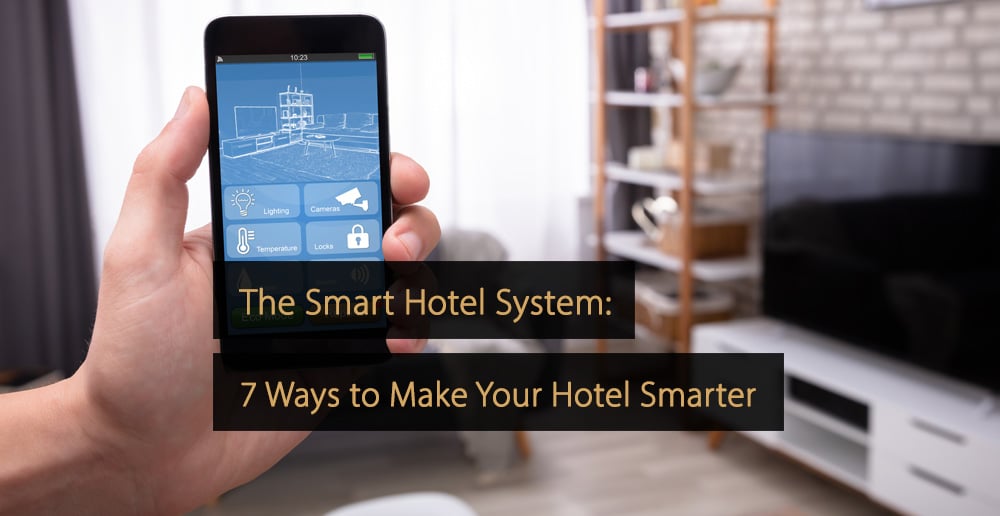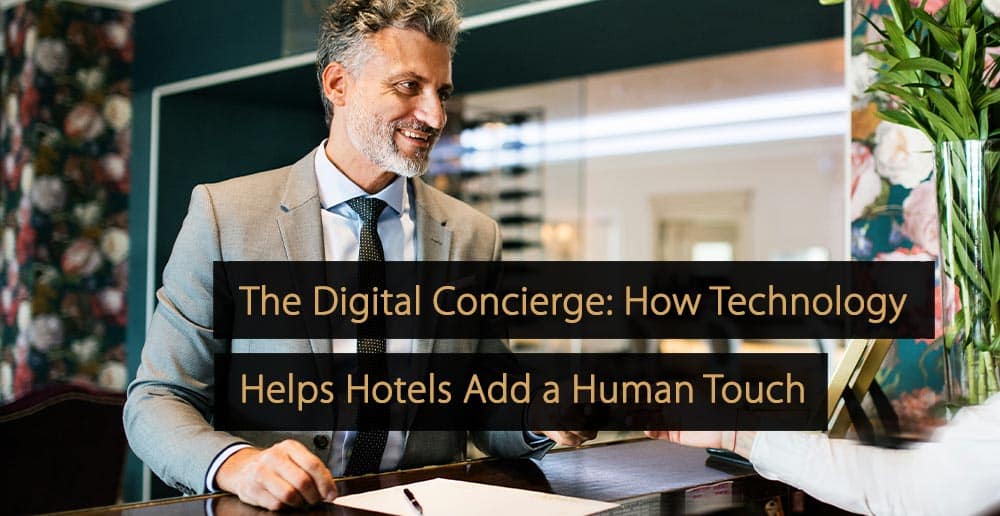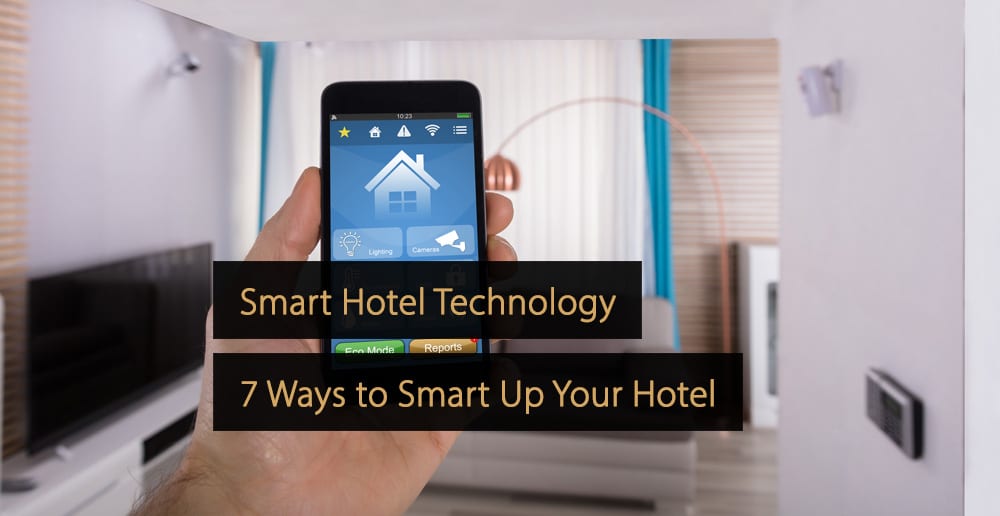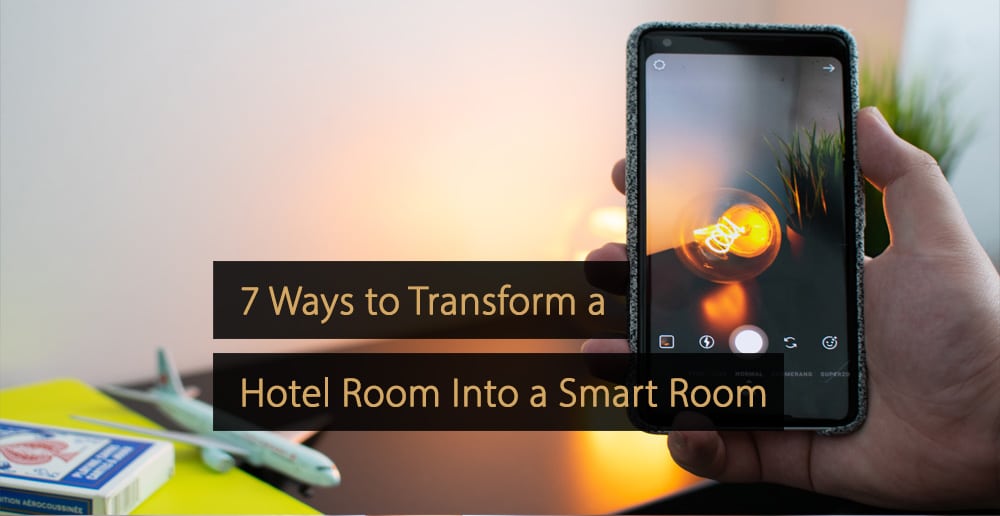The “smart hotel system” concept is now taking center stage regarding reputation, brand loyalty, and the average customer experience. This is why many properties leverage the benefits of a smart hotel room. Let’s take a look at this concept in greater detail.
What Amenities Does a Smart Hotel System Offer its Guests?
The basic premise behind this type of service is the ability to provide hotel guests with immediate access to cutting-edge technology within their rooms. In other words, a smart room has fully embraced the Internet of Things so that customers can create bespoke experiences based on their personal requirements. Wireless connectivity, adjustable environmental settings, and the ability to enjoy a greater degree of automated responsiveness are some features defining this approach. Modern smart technology is, therefore, able to ensure that your guests can enjoy all the hotel offers. Now that we have a general understanding of this technology let’s break down a smart hotel system into seven categories.
Smart Hotel System: 7 Ways to Make Your Hotel Smarter
1. Enhanced Connectivity to Guest Services and Staff Members
One of the most important issues you must constantly address involves online guest reviews. Websites such as Booking.com and TripAdvisor can make or break a hotel. In the same respect, most feedback found on these and other portals involves whether or not the guests felt that their needs were being catered to. This begins and ends with the services provided by your hotel.
Smart hotel solutions will therefore involve your ability to provide faster and more targeted guest options while not sacrificing quality. Whether referring to room service, massage treatments, or exercise classes, customers should be provided with immediate access to their choices with the click of a button. This is why many smart hotel systems have adopted bespoke technology, such as dedicated smartphone applications and touchscreen interfaces within the rooms. Happy guests will remain loyal over time; increasing your ultimate return on investment.
2. Intelligent Environmental and Entertainment Controls
The role of the smart room is also becoming much more pronounced. After all, guests will often rate their experiences directly to the amenities they are provided with. This is another great example of when technology will be critical in molding your reputation. It, therefore, makes a great deal of sense that many hotels have adopted the same smart systems that can be found within homes. Examples can include (but may not be limited to):
- Personalized control over room temperature, lighting, and even window blinds.
- Using the Internet of Things (IoT) to offer guests immediate wireless access to centralized smart systems.
- Dedicated integration with devices such as smartphones and tablets.
Unsurprisingly, larger franchises such as Hilton have already rolled out this technology; even incorporating third-party systems such as Amazon Echo into their overall digital layout. Guests who can enjoy more personalized and user-friendly controls will appreciate the fact that your hotel cares about their discrete requirements.
3. The Inclusion of Voice-Ready Technology
As mentioned in the previous section, systems such as Amazon Echo and Alexa have gained a massive following in recent years. So, why not include these within a smart hotel system? Voice-controlled technology provides guests with a convenient means to control basic aspects within their rooms. Voice commands can control options such as turning on a television, setting a thermostat to a specific temperature, and even requesting a wake-up call at a specific time.
The good news is that the architecture behind this technology has come a long way in recent years. Such systems are no longer limited to only the most basic commands. On the contrary, your guests now have additional options, such as creating musical playlists or selecting a film to be played on an HD-ready television. Customers will appreciate the numerous options at their disposal, and in turn, your hotel will gain a reputation for offering cutting-edge solutions.
4. Smart and Interactive Maps
Another way in which smart hotel systems are transforming guest experiences is through the use of real-time interactive mapping solutions. Not only can these items be used to orientate the guests themselves, but such maps are just as capable of displaying important information such as:
- Check-out times and the location of the reception desk.
- Where specific restaurants are located, as well as their opening hours.
- Nearby attractions and places of interest to visit.
- The types of public transportation available and where major hubs can be found.
It should also be mentioned that the use of augmented reality (AR) applications can now allow users to point their phones in a certain direction to learn more about various destinations and portions of the hotel itself.
5. Personalised Forms of Entertainment
While there is no doubt that guests will benefit from the presence of the Internet of Things, many hotels are now beginning to provide them with even more intuitive ways to access personal entertainment accounts. Examples include Netflix, Spotify, Amazon Prime, and Apple Music. Syncing such services with personal wireless devices is an excellent way to provide a semblance of familiarity, a proverbial “home away from home”. This is also quite desirable for business travelers and professionals looking for a heightened sense of relaxation while on the road.
Therefore, it should come as no surprise that products such as Alexa for Hospitality have entered the marketplace. Voice control, access to audiobooks, and customized music playlists are a handful of options that guests will certainly enjoy during their stay at your premises.
6. The Concept of Sustainability
Smart hotel systems also can improve sustainability. Eco-friendly hotels have greatly impacted the hospitality industry because guests are now appreciating their relationship with the natural environment. A smart hotel room is known for its energy-saving qualities, such as its ability to automatically dim lighting when a guest leaves the room or to set a thermostat to a lower setting during overnight hours. Not only will such qualities help to reduce the overall carbon footprint of your hotel, but these savings can translate into other advantages, such as better publicity and reduced room rates. Let’s also not fail to mention that a growing number of potential patrons will perform online searches for eco-friendly hotels.
7. Adopting Smart and Targeted Forms of Data Collection
Hotel reputation management relies heavily upon collating and interpreting feedback from your guests. These data-driven results will enable you to make important policy changes and cater to a certain demographic’s needs. The good news is that data can still be collected without violating your patrons’ privacy (or presenting them with clumsy and inconvenient questionnaires). In some ways, this approach is similar to how websites collect cookies from their visitors. Common examples of information that can be used to improve guest experiences include:
- Which movies are watched the most frequently?
- The room temperature that the majority of guests prefer.
- Average checkout times.
- The most popular radio stations.
- Working Smart as Opposed to Hard
Smart Hotel Room; What Are the Benefits for Hotel Owners and Guests
In the article “Smart Hotel Room; What Are the Benefits for Hotel Owners and Guests,” you will learn more about how smart hotel rooms can benefit hotel owners and guests alike.
Video: Example of a Smart Hotel Room
Video: Smart Hotel Systems – Las Vegas Hotels Go High Tech
–
Appreciating the role of a smart hotel system is the best way to leverage the unique benefits associated with your hotel. Not only will you enhance your brand’s reputation, but you can rest assured in the knowledge that guests are being provided with a truly memorable experience.
More Tips to Grow Your Business
Revfine.com is the leading knowledge platform for the hospitality and travel industry. Professionals use our insights, strategies, and actionable tips to get inspired, optimize revenue, innovate processes, and improve customer experience.Explore expert advice on management, marketing, revenue management, operations, software, and technology in our dedicated Hotel, Hospitality, and Travel & Tourism categories.
This article is written by:
Hi, I am Martijn Barten, founder of Revfine.com. With 20 years of experience in the hospitality industry, I specialize in optimizing revenue by combining revenue management with marketing strategies. I have successfully developed, implemented, and managed revenue management and marketing strategies for individual properties and multi-property portfolios.









Leave A Comment